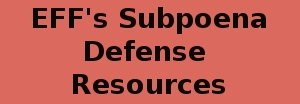
Photo 
 Some rights reserved by Santos "Grim Santo" Gonzalez
Some rights reserved by Santos "Grim Santo" Gonzalez
UPDATE: 2-19-14
It could be entirely coincidental but on February 14th the official YouTube Creators blog had a post about bots inflation on YouTube. You can read the whole blog here. The blog certainly isn’t a complete response to our blog nor does it address the many complex layers of the Bots problem but it does recognize two important things.
First it recognizes the importance of likes and comments to the YouTube community and acknowledges that these “interactions both represent and inform how creators connect with their audience.” This was one of the biggest complaints we heard from creators. Not just that their videos were taken down but that they permanently lost the likes, insightful comments and best wishes from their fans. Even when creators reposted their videos they were unable to recover this part of their community.
Second, the blog may suggest that YouTube may focus on auditing view counts as opposed to taking videos down. The blog states that:
As part of our long-standing effort to keep YouTube authentic and full of meaningful interactions, we’ve begun periodically auditing the views a video has received. While in the past we would scan views for spam immediately after they occurred, starting today we will periodically validate the video’s view count, removing fraudulent views as new evidence comes to light. We don’t expect this approach to affect more than a minuscule fraction of videos on YouTube, but we believe it’s crucial to improving the accuracy of view counts and maintaining the trust of our fans and creators.
Although YouTube has been auditing views for some time now, there has been an inconsistent policy of removing some videos while simply auditing views of other videos. If YouTube’s new plan is to audit views instead of taking videos down; we support that plan. Almost every single creator who we talked to wanted a way to remove fraudulent views from their accounts. These creators are part of the YouTube community and believe in the importance of accurate view counts. However, these creators don’t want to be punished when someone out of their control uses Bots on their account. By reducing view counts instead of taking down videos, the potential use of Bots attacks for censorship purposes greatly decreases, which was one of our biggest concerns.
That said if the recent blog doesn’t match reality we want to hear about it. After all, it could be a complete coincidence that this blog was released shortly after our own blog. It is still entirely plausible that nothing is actually changing and YouTube intends to continue to ignore problematic Bots related takedowns. That said, if you video was wrongfully taken down for bots inflation AFTER February 14, 2014 we want to hear about it.







